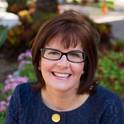The authors developed an alternative Spring Break Study Abroad course to bring University of South Florida (USF) students to Moldova to study with their counterparts at the Free International University of Moldova (ULIM). The course was a Political Science seminar about the history, government, and politics of Moldova. The authors shared a desire to cultivate “global citizens” and to provide opportunities for their students to work collaboratively. The course was distinctive in its level of integration of U.S. students with colleagues in Moldova. Students had the opportunity to meet with leaders of NGOs working to strengthen civil society in Moldova. In addition to their time spent in direct service, students learned from agency staff who answered questions about social issues, the formation of social policy, and social justice in Moldova. Students volunteered together at orphanages and at a domestic violence shelter. In addition to working with the students enrolled in the joint course, one service project was implemented with the Lion’s Club Chişinău with students from several other universities in Chişinău as well.
Article
Cultivating global citizenship in higher education: Civic engagement and service learning in joint study abroad courses.
USF St. Petersburg campus Faculty Publications
Document Type
Article
Publication Date
2015
Disciplines
Abstract
Language
en_US
Creative Commons License
Creative Commons Attribution-Noncommercial-No Derivative Works 4.0
Citation Information
McLauchlan, J.S. & Patlis, L. (2015). Cultivating global citizenship in higher education: Civic engagement and service learning in joint study abroad courses. Revista Internacional de Educacion para la Justicia Social (RIEJS), 4(1), 111-129. doi: 10.15336/riejs

Abstract only. Full-text article is available only through licensed access provided by the publisher. Published in Revista Internacional de Educacion para la Justicia Social (RIEJS), 4(1), 111-129. doi: 10.15336/riejs